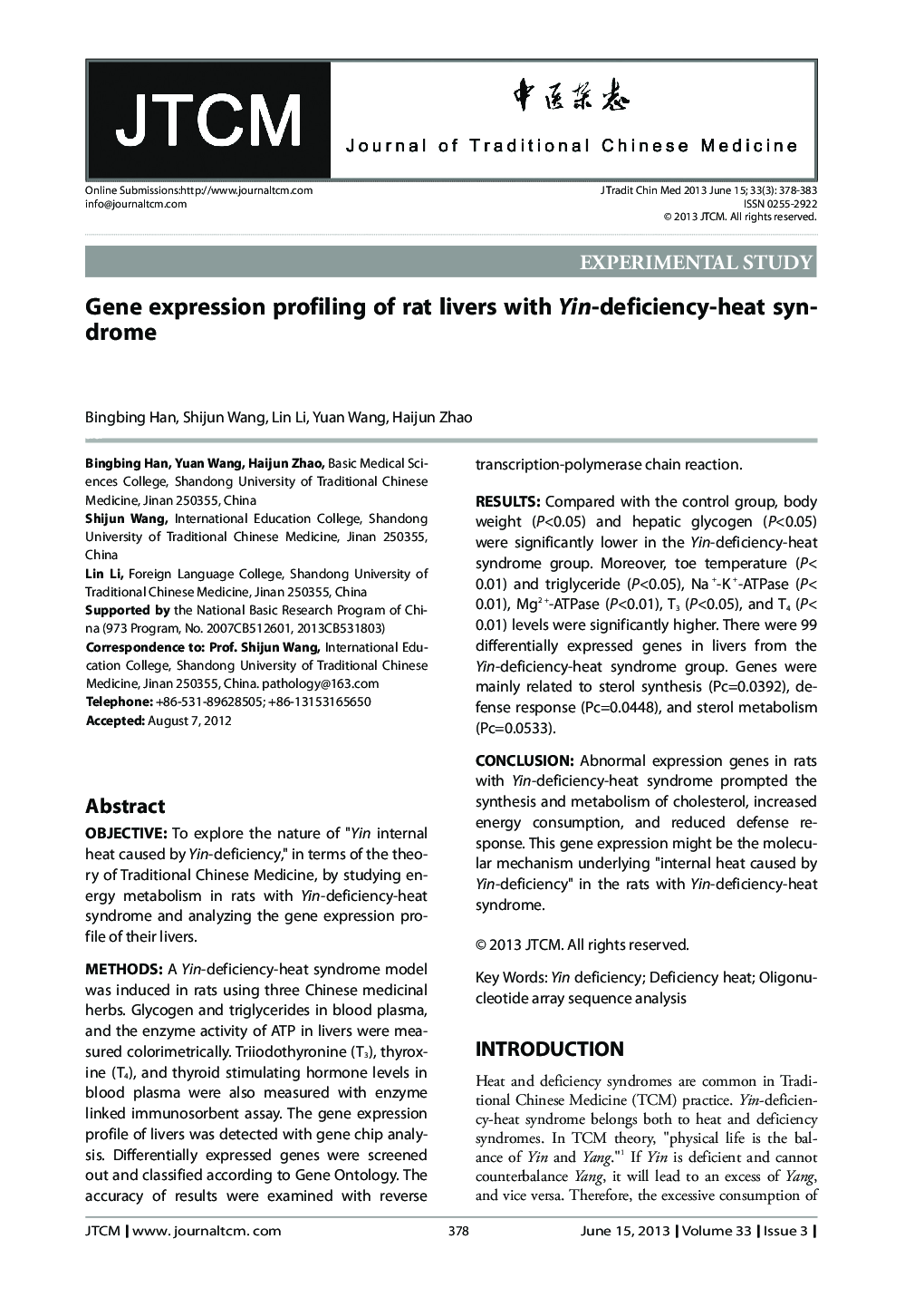| Article ID | Journal | Published Year | Pages | File Type |
|---|---|---|---|---|
| 4201465 | Journal of Traditional Chinese Medicine | 2013 | 6 Pages |
ObjectiveTo explore the nature of ”Yin internal heat caused by Yin-deficiency,” in terms of the theory of Traditional Chinese Medicine, by studying energy metabolism in rats with Yin-deficiency-heat syndrome and analyzing the gene expression profile of their livers.MethodsA Yin-deficiency-heat syndrome model was induced in rats using three Chinese medicinal herbs. Glycogen and triglycerides in blood plasma, and the enzyme activity of ATP in livers were measured colorimetrically. Triiodothyronine (T3), thyroxine (T4), and thyroid stimulating hormone levels in blood plasma were also measured with enzyme linked immunosorbent assay. The gene expression profile of livers was detected with gene chip analysis. Differentially expressed genes were screened out and classified according to Gene Ontology. The accuracy of results were examined with reverse transcription-polymerase chain reaction.ResultsCompared with the control group, body weight (P<0.05) and hepatic glycogen (P<0.05) were significantly lower in the Yin-deficiency-heat syndrome group. Moreover, toe temperature (P< 0.01) and triglyceride (P<0.05), Na+−K+−ATPase (P< 0.01), Mg2+−ATPase (P<0.01), T3 (P<0.05), and T4 (P< 0.01) levels were significantly higher. There were 99 differentially expressed genes in livers from the Yin-deficiency-heat syndrome group. Genes were mainly related to sterol synthesis (Pc=0.0392), defense response (Pc=0.0448), and sterol metabolism (Pc=0.0533).ConclusionAbnormal expression genes in rats with Yin-deficiency-heat syndrome prompted the synthesis and metabolism of cholesterol, increased energy consumption, and reduced defense response. This gene expression might be the molecular mechanism underlying “internal heat caused by Yin-deficiency” in the rats with Yin-deficiency-heat syndrome.
